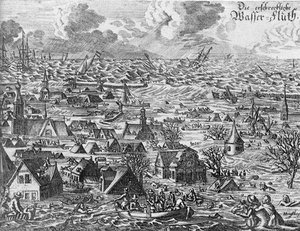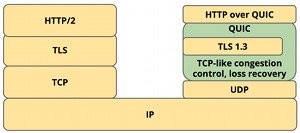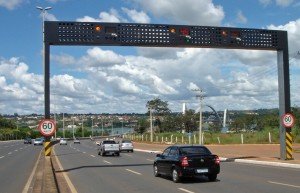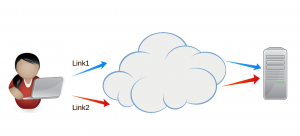Filter by topic and date
Welcome to IETF-97!
- Jari Arkko IETF Chair
7 Nov 2016
IETF-97 is starting in a couple of days in Seoul, Korea, as well as running online for many participants connecting over the Internet.

IETF-97 is starting in a couple of days in Seoul, Korea, as well as running online for many participants connecting over the Internet. Either way, I hope to see you in the meeting! Agenda, registration, and remote attendance instruction can all be found from the IETF-97 meeting page.
There are more than a hundred meetings during the week on different topics, but I wanted to highlight a few ones that I think are significant or particularly interesting.
- The topic of the technical plenary in the 97th IETF meeting will be “Attacks Against the Architecture”,
 a discussion about large-scale denial-of-service attacks involving Internet of Things devices and how the attacks leverage the Internet architecture. We will also talk about possible ways to think about solutions. Read more about this topic from the blog post.
a discussion about large-scale denial-of-service attacks involving Internet of Things devices and how the attacks leverage the Internet architecture. We will also talk about possible ways to think about solutions. Read more about this topic from the blog post. - The QUIC working group has just been chartered, and will meet for the first time in Seoul. This working group is taking Google’s pre-standardization QUIC protocol that has been deployed in production for several years, and will use it as a starting point to develop a UDP-based,
 stream-multiplexing, encrypted transport protocol with standardized congestion control, TLS 1.3 by default, a mapping for HTTP/2 semantics over QUIC, and multipath extensions. This is a significant development, because it changes the traditional layering from TCP, TLS, and HTTP to a more closely integrated transport functionality.
stream-multiplexing, encrypted transport protocol with standardized congestion control, TLS 1.3 by default, a mapping for HTTP/2 semantics over QUIC, and multipath extensions. This is a significant development, because it changes the traditional layering from TCP, TLS, and HTTP to a more closely integrated transport functionality. - The TLS WG meets on Tuesday and Friday. The group has started working group last call on TLS1.3. It’ll be an extended and two part last call so we can get the WG participant feedback handled and then leave some time for the cryptographers to check that nothing bad’s happened since they last looked at a draft version. That “planned hold” has been on the cards since the start of the work. Expected end of the last call is in January and then all going well IETF last call.
- In the Routing Area, YANG work is of high interest. A Joint YANG session among four Working Groups (CCAMP, MPLS, PCE, and TEAS) will be held on Monday to coordinate the work. Topics will include TE topology models, MPLS, PCE, Microwave Radio Link, and Transport.
- IPWAVE is a new working group, focusing on communications in vehicular networks. For further information, see the agenda. They are meeting on Wednesday.

- LPWAN is a new working group that is focused on running internet protocols on a Low Power Wide Area Networks. See the agenda. They are meeting on Monday.
There are also a number of Birds-of-Feather or BOF meetings, focusing on the question of whether new work is needed on some topic:
- DNSBUNDLED will be having a non-WG forming BOF on Wednesday. It is concerned with mapping and maintaining one DNS domain and all of its underlying name structure into another domain. For instance, being able to map the same labels across TLDs, such as example.com to example.net. The agenda for this BOF is here.
- BANdwidth Aggregation for interNet Access (BANANA) will be having a non-WG forming BOF on Thursday. BANANA is concerned with
 providing coordinated Internet Access to a device over multiple links of different types to allow for increased bandwidth utilization, load-balancing and/or higher reliability. The goal of this BoF is to come up with a shared understanding of the problems that the IETF would like to solve in this space, complementing on and in collaboration with work ongoing in the MPTCP working group and the Broadband Forum. The group’s agenda is here.
providing coordinated Internet Access to a device over multiple links of different types to allow for increased bandwidth utilization, load-balancing and/or higher reliability. The goal of this BoF is to come up with a shared understanding of the problems that the IETF would like to solve in this space, complementing on and in collaboration with work ongoing in the MPTCP working group and the Broadband Forum. The group’s agenda is here. For more information on these and other new proposals, there’s more information in the new work blog article.
Jari Arkko, IETF Chair
Photo credits: Seoul bridge Wikimedia (d’n’c – http://www.flickr.com/photos/fukagawa/195944150/), Burchardi flood Wikimedia (Contemporary picture), QUIC IETF (Jana Iyengar), road traffic controls Wikimedia (Mariordo Mario Roberto Duran Ortiz), and Multipath TCP Wikimedia (Aclarembeau).